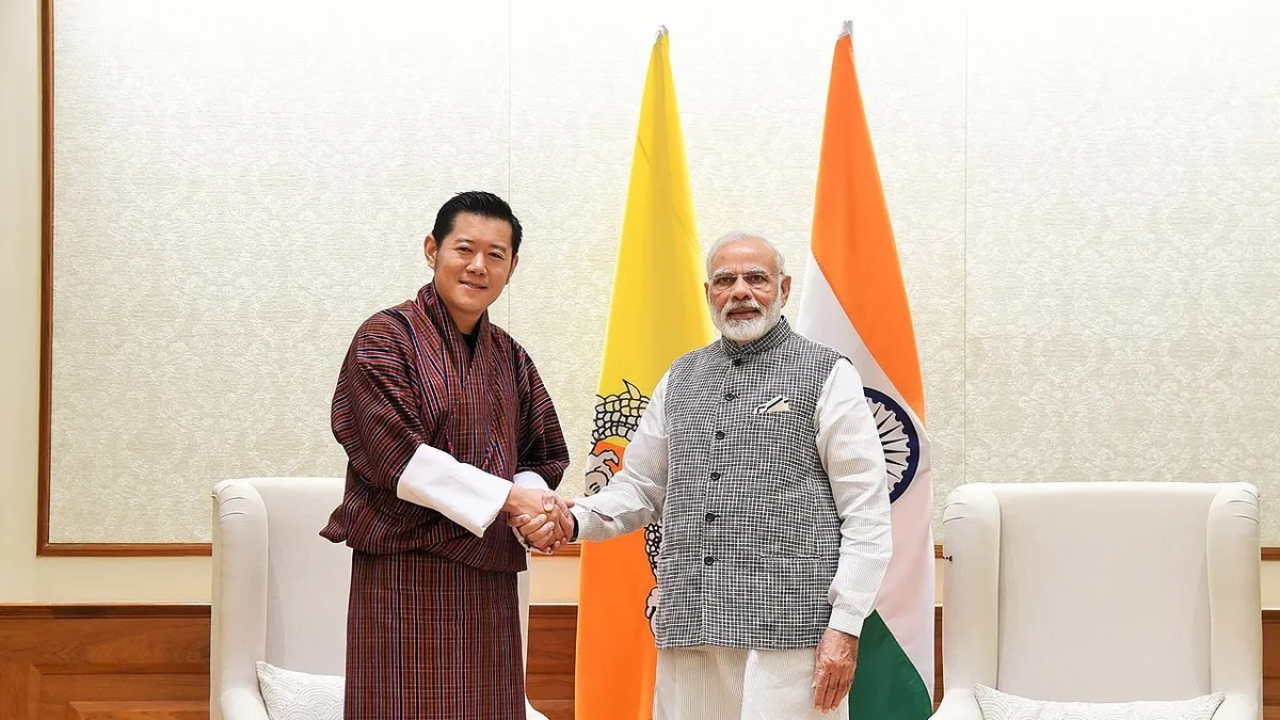Border Dispute Resolution
Border Dispute Resolution: The recent visit of Bhutan’s King Jigme Khesar Namgyel Wangchuck to India has attracted significant attention and a warm reception. This visit is particularly noteworthy as it aligns with renewed efforts by Bhutan and China to resolve their long-standing border dispute. This article explores the key highlights of the visit and the potential consequences for India’s security interests.
Key Highlights: Border Dispute Resolution
Cordial Welcome:
- King Wangchuck’s eight-day visit to India commenced in Guwahati on November 3, where he was personally greeted by India’s External Affairs Minister S. Jaishankar. This reception underlines India’s strong commitment to the visit.
Strengthening Bonds:
- The primary goal of this visit is to further reinforce the already close friendship and cooperation between India and Bhutan, highlighting the strategic partnership between the two nations.
High-Level Engagements:
- During his visit, King Wangchuck is scheduled to hold meetings with both Prime Minister Narendra Modi and External Affairs Minister S. Jaishankar. These meetings signify the importance of the discussions during the visit.
Bilateral Collaboration:
- The Ministry of External Affairs has indicated that the visit provides an opportunity for both countries to assess their extensive bilateral cooperation and enhance their outstanding partnership in various sectors.
China’s Involvement: Border Dispute Resolution
Embracing the One-China Principle:
- In an important development, Bhutan reiterated its commitment to the one-China principle during talks with China, as stated in a Chinese communication. This move aligns Bhutan with China’s stance on Taiwan, despite Bhutan not having official diplomatic relations with China.
Border Dispute Resolution:
- Bhutan and China have agreed to expedite negotiations by implementing a “three-step roadmap” to resolve their border dispute, which is viewed as a positive step forward in their dialogue.
Background: Border Dispute Resolution
Doklam Standoff:
- The agreement between Bhutan and China comes after a 73-day standoff in the Doklam tri-junction in 2017. This standoff unfolded when China attempted to extend a road in an area that Bhutan claimed as its territory. India supported Bhutan’s claim, leading to regional tensions and concerns about a larger conflict between India and China.
Strategic Importance:
- The Doklam tri-junction holds strategic significance as it marks the confluence of borders between India, Bhutan, and China. The resolution of the border dispute directly impacts the regional security dynamics.
Conclusion
King Wangchuck’s visit to India is of great significance in strengthening the bonds between the two nations and in light of ongoing efforts to resolve the Bhutan-China border dispute. India is closely monitoring these negotiations due to the potential consequences for its security interests in the Doklam tri-junction. As these talks progress, the future of the regional security landscape will be closely observed.
- SIDBI Grade B Notification 2025 Out For 26 Manager Post
- SSC CGL Tier 2 Weightage of English and Quants, Check Here
- 7 Tips for Staying Motivated during SSC CGL Exam Preparation
- General Science Question for SSC CGL Exam, Attempt Here
- SIDBI Grade B Syllabus & Exam Pattern 2025, Download PDF

